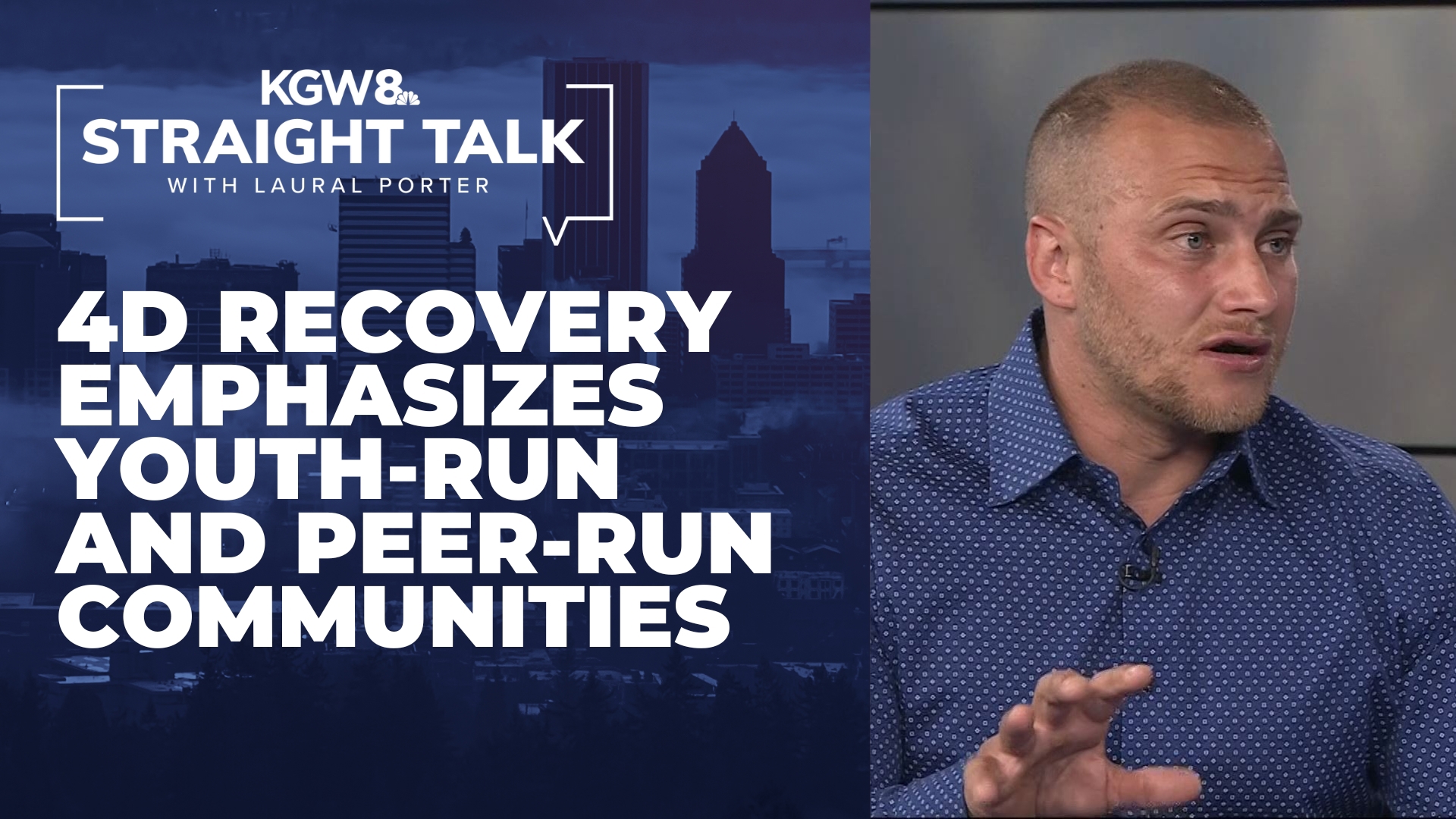PORTLAND, Ore. — September is Recovery Month, celebrating the recovery community and highlighting the importance of evidence-based treatment and recovery practices.
Coincidentally, Sept. 1 is also the day that drug recriminalization takes effect in Oregon, following the passage of House Bill 4002, which partially rolls back Measure 110, Oregon's 2020 decriminalization law. Possession will become a misdemeanor, but the new law allows offenders to "deflect" from the justice system into treatment programs on a county-by-county basis.
Tony Vezina is co-founder and executive director of Fourth Dimension Recovery Center, or 4D Recovery, which is joining the Multnomah, Clackamas and Washington county deflection programs. It's a youth-led, peer-run recovery community, and Vezina was a guest on this week's episode of Straight Talk to discuss the organization's work and mission.
Vezina describes himself as being in long-term recovery from alcohol and drugs. He said he began using drugs at a relatively young age due to a rough childhood, and eventually became addicted to OxyContin. When the medication became less available due to a government crackdown on overprescribing, he switched to heroin. He eventually ended up homeless.
At 27 years old, Vezina was arrested and released early from jail to enter treatment. During that time, he was able to get his GED and then go to college through a scholarship program. He then became a state-licensed drug and alcohol counselor, and has worked since then to try to help others find recovery.
Vezina founded 4D Recovery about 10 years ago, and the nonprofit organization — the first youth-led recovery community of its kind in the United States — has grown rapidly over the past decade, serving over 500 young people each month with recovery support services like peer mentoring, sober social events, and mutual aid support meetings.
The peer-run approach means that a majority of people who work and volunteer at the nonprofit or serve on its board of directors are themselves in recovery, Vezina explained.
"We bring that lived experience and that recovery-oriented philosophy into our business operations," he said. "What we do right now is peer services, basically, and so we have people like me in recovery who get sober, get a little sober time under their belt, and then they become recovery coaches or mentors, and they get certified by the state."
4D Recovery operates Recovery Centers where participants can spend time and socialize, as well as street outreach and recovery housing. The organization targets two particular age groups, he said: adolescents age 13-17 and young adults age 18-35, with one Recovery Center for the first group in southeast Portland and multiple Recovery Centers in Multnomah, Washington and Clackamas counties for the second group.
The peer staff and volunteers draw on their own experience and evidence-based communication strategies to instill hope and help motivate people to start their recovery journeys, he said — and to sustain them over the long term.
"When you help people quit using drugs and alcohol and they get to the 5-year mark, the likelihood that they relapse drops down to about 10, 15%," he said, "which is about the equivalent of developing an addiction in the first place."
Recovery Month is a time to reflect on the progress made so far in combatting the addiction crisis and looking to the work that still needs to be done, he said, but it's also an opportunity to highlight stories of hope and help more people understand that recovery is possible.
"People often think I'm unique, and I'm not," he said. "I know a ton of people who are just like me, had a similar struggle as me, overcame it — and now they're out in the community helping others."
Vezina said he supports the recriminalization law that takes effect Sept. 1 because it sets up progressive intervention when needed, but with the intention to nudge people into treatment services. He said it's easy to focus purely on the recriminalization aspect without bearing in mind that the legislature also allocated large amounts of funding for treatment.
The new approach will give 4D an opportunity to work with public safety officials and the criminal justice system, he said, stepping in to help motivate and support individual people who are being pushed toward recovery.
Vezina said the new law also coincides with what he sees as a broader shift in the way Oregon thinks about drug treatment over the past decade. Even though some of the deflection programs have struggled to launch, he said today's political climate is much more supportive of recovery and treatment services, which makes him confident that the efforts will find long-term success.
"There's a sense of urgency to address the problem that I've never seen before," he said.

